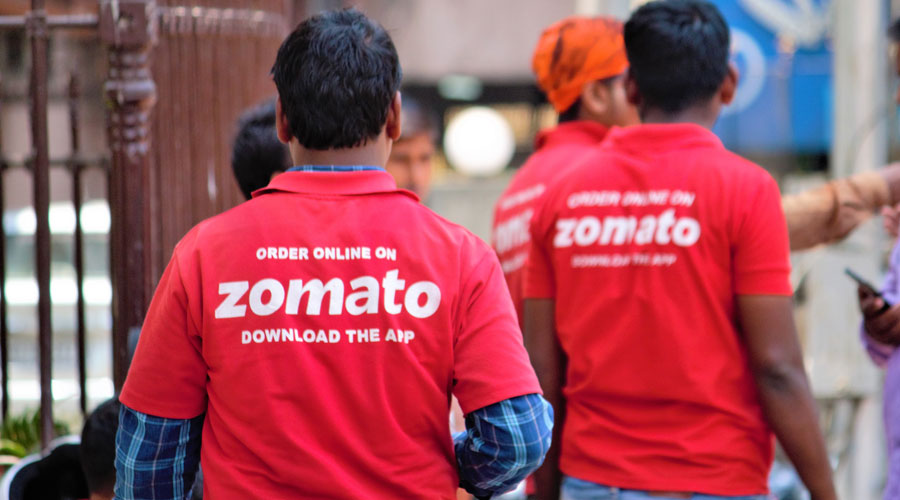Online food delivery platform Zomato on Thursday said it is building public infrastructure called 'Rest Points' to support the entire gig economy and delivery partners of various companies.
In a blog post, the company's Founder and CEO Deepinder Goyal informed that it already has two 'Rest Points' operational in Gurgaon and plans to create more rest points in the most dense clusters of its food delivery business.
Rest Points offer clean drinking water, phone-charging stations, access to washrooms, high-speed internet, a 24×7 helpdesk and first-aid support.
Goyal, however, did not disclose the number or the location for setting up these Rest Points.
"We recognise that delivery partners face multiple challenges while on the job, from navigating through traffic to delivering orders in inclement weather conditions.
"In line with our commitment to their welfare, we are delighted to announce The Shelter Project – under which we have started building public infrastructure (called Rest Points) to support the entire gig economy and delivery partners of various companies," Goyal said in the blog post.
Goyal further noted that "we believe that by providing a space for all delivery partners to rest, recharge, and take a moment for themselves, we can create a better environment that promotes their physical and mental health." A study by government think tank NITI Aayog had recently estimated that in 2020-21, 77 lakh workers were engaged in India's gig economy, with the workforce expected to expand to 2.35 crore workers by 2029-30.
Delivery boys, cleaners, consultants, bloggers, etc., are all part of the gig economy, and face several challenges related to social security, gratuity, minimum wage protection and working hours, as they are engaged in livelihoods outside the traditional employer-employee arrangement.
Except for the headline, this story has not been edited by The Telegraph Online staff and has been published from a syndicated feed.











